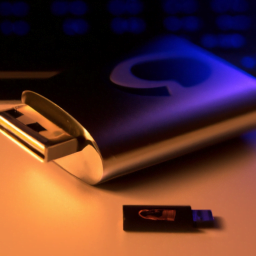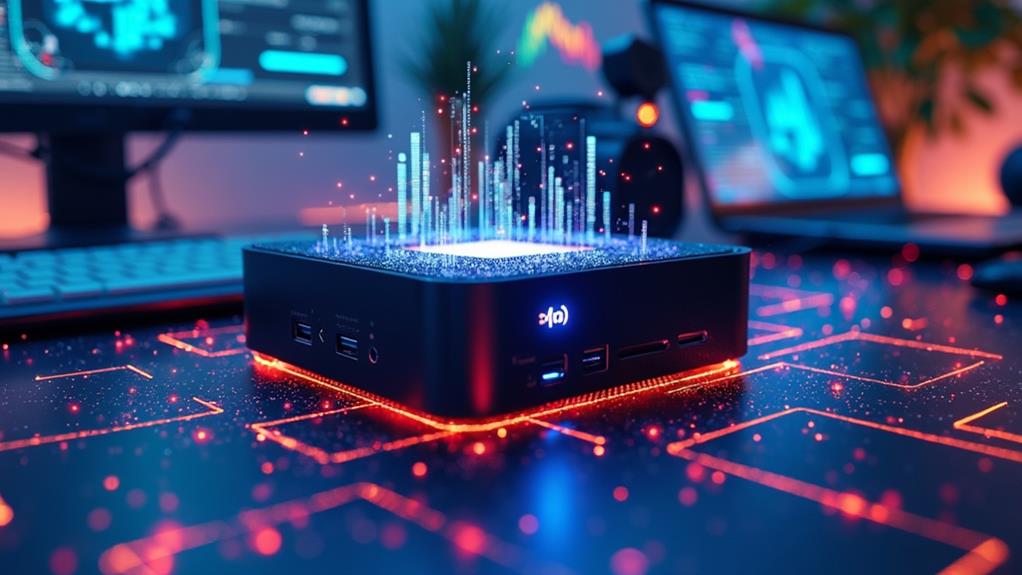



So you’re the proud owner of a mini PC, but you find yourself wondering if it’s possible to expand its storage capacity with some external help. Well, the good news is that you’re in the right place! In this article, we’ll explore the possibility of adding external storage to a mini PC and highlight some key considerations you need to keep in mind. Whether you’re looking to store massive amounts of data or simply need a quick solution to free up space, we’ve got you covered. So let’s dive right in and discover the world of external storage for your beloved mini PC!
Understanding the Concept of Mini PC
Definition of Mini PC
A Mini PC, also known as a small form factor PC, is a compact computer that offers similar functionalities as a traditional desktop or laptop computer but in a much smaller size. Mini PCs are designed to be space-efficient and portable, making them an ideal choice for individuals who require a computer that can be easily transported or used in limited spaces.
Key Features of Mini PCs
Mini PCs come with a variety of key features that make them a popular choice for many users. Firstly, their compact size allows them to fit into tight spaces, such as on a desk or in a living room entertainment center. Despite their small footprint, mini PCs often pack powerful hardware components, including processors, memory, and storage options.
Another important key feature of mini PCs is their energy efficiency. Since they are designed with smaller components, they consume less power compared to larger desktop computers. This not only helps save on electricity bills but also minimizes environmental impact.
Furthermore, mini PCs are often customizable, allowing users to upgrade or replace certain components to meet their specific needs. This flexibility is especially beneficial for individuals who require specialized hardware configurations, such as graphic designers or video editors.
Popular Mini PC Brands
Several reputable brands have established themselves as leaders in the mini PC market. Some of the popular brands include:
Intel NUC: Intel NUC (Next Unit of Computing) is a well-known brand that offers a wide range of mini PCs with different configurations to cater to various user requirements.
ASUS Mini PC: ASUS is a renowned manufacturer known for its high-quality computer products. Their mini PCs are known for their reliability and performance.
Lenovo ThinkCentre: Lenovo ThinkCentre mini PCs are highly regarded for their durability and small form factor design. They are often used in professional settings where space is limited.
HP EliteDesk: HP EliteDesk mini PCs are known for their sleek design and advanced features. They are a popular choice for both home and office use.
Zotac ZBOX: Zotac specializes in manufacturing mini PCs and has gained a good reputation for their compact yet powerful devices. They offer a wide range of options to suit different user preferences.
These are just a few examples, and there are many other reputable brands in the market to choose from.
The Need for Additional Storage
Why Storage Space Matters
Storage space is a crucial aspect of any computer system, including mini PCs. As technology advances, files and data sizes continue to grow, requiring larger amounts of storage capacity. Having adequate storage space ensures that you can store all your important documents, media files, and software programs without running out of room.
Implications of Limited Storage
Limited storage space can have several negative implications. Firstly, it can greatly restrict your ability to store and keep track of important files. You may find yourself constantly deleting or transferring files to free up space, which can be time-consuming and inconvenient.
Moreover, limited storage space can impact the overall performance of your mini PC. When the storage drive is nearing its capacity, there may be slowdowns in read and write speeds, leading to a decrease in the overall speed and responsiveness of your computer.
Additionally, if you work with large files or frequently install software programs, you may encounter issues when there is not enough space available. This can result in error messages, incomplete installations, or the inability to save changes to your files.
Scenarios Where Extra Storage Becomes Essential
There are several scenarios where having extra storage becomes essential.
For individuals who work with multimedia files, such as photographers, videographers, or content creators, having ample storage space is crucial to store high-resolution photos, videos, and audio files. These files can quickly accumulate in size and require a considerable amount of storage capacity.
Gaming enthusiasts also benefit from additional storage space. Modern video games often come with large file sizes, and having extra storage allows gamers to install multiple games without having to uninstall and reinstall them frequently.
Furthermore, individuals who use their mini PCs for work-related purposes, such as businesses or professionals working with large datasets or complex software programs, may require additional storage to accommodate their needs. With more storage capacity, they can efficiently organize and access their files without worrying about running out of space.
In summary, having extra storage space is essential to overcome limitations and ensure smooth and efficient operation of your mini PC, regardless of your specific needs.
Types of Mini PC External Storage Options
USB Flash Drives
USB flash drives, also known as thumb drives or pen drives, are a popular choice for external storage for mini PCs. These small and portable devices connect to the mini PC via a USB port and provide additional storage capacity.
External Hard Drives
External hard drives are larger in size compared to USB flash drives but offer higher storage capacities. These drives are connected to the mini PC through a USB or Thunderbolt port and provide additional storage space for data backup, file transfers, or multimedia storage.
Cloud-Based Storage
Cloud-based storage involves storing and accessing data on remote servers over the internet. This type of storage allows you to access your files from anywhere with an internet connection, without the need for physical storage devices.
Network Attached Storage (NAS)
NAS devices are dedicated storage units that connect to your mini PC via a network, either wired or wireless. NAS systems provide centralized storage that can be accessed by multiple devices on the network, making them an ideal choice for homes or small businesses with multiple users.
Understanding USB Flash Drives
Composition and Functionality
USB flash drives are composed of a small circuit board encased in a plastic shell with a USB connector on one end. The circuit board contains flash memory chips that store data electronically. The USB connector allows the flash drive to be plugged into a USB port on your mini PC, enabling data transfer between the drive and the computer.
USB flash drives function as portable storage devices that are highly convenient and easy to use. They provide instant access to your stored files, allowing you to quickly transfer data between different devices.
Choosing the Right USB Capacity
USB flash drives come in various storage capacities, ranging from a few gigabytes to several terabytes. When choosing the right USB capacity for your mini PC, consider your specific storage needs and the type of files you intend to store.
For basic document storage and file transfers, a smaller capacity USB flash drive, such as 16GB or 32GB, may be sufficient. However, if you plan to store multimedia files, large software programs, or perform regular backups, opt for higher-capacity options, such as 128GB or 256GB.
The Pros and Cons of USB Flash Drives
USB flash drives offer several advantages that make them a popular choice for mini PC users. Firstly, they are highly portable and lightweight, allowing you to carry your files with you wherever you go. Additionally, they are plug-and-play devices, requiring no additional software or drivers to be installed.
Moreover, USB flash drives are relatively inexpensive compared to other external storage options. They provide a cost-effective solution for expanding the storage capacity of your mini PC without breaking the bank.
However, USB flash drives also have some limitations. Firstly, their small size makes them prone to loss or damage if not properly taken care of. Moreover, the read and write speeds of USB flash drives can be slower compared to other storage options, especially for larger file transfers.
Disclosure: As an Amazon Associate, I earn from qualifying purchases.





